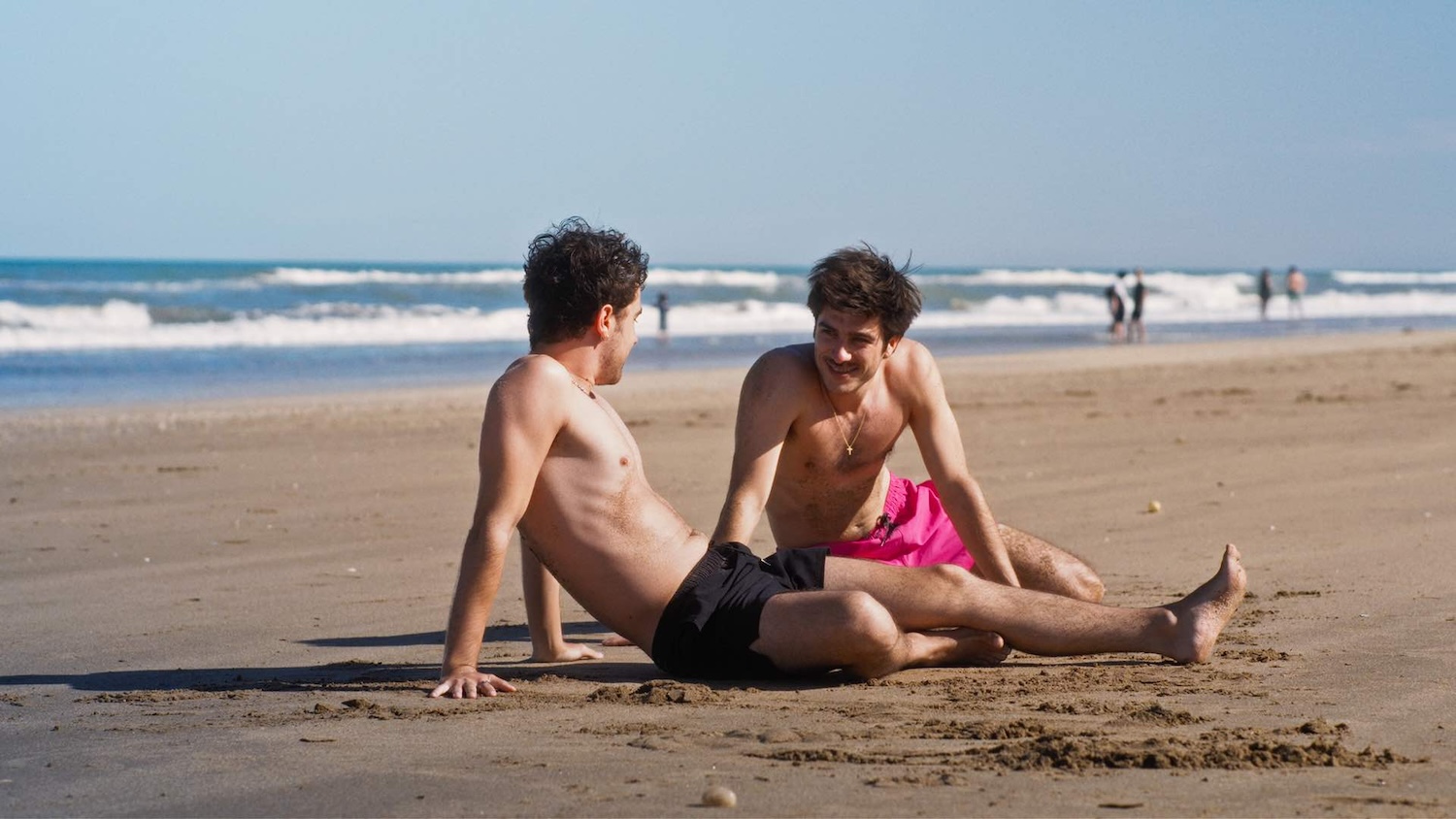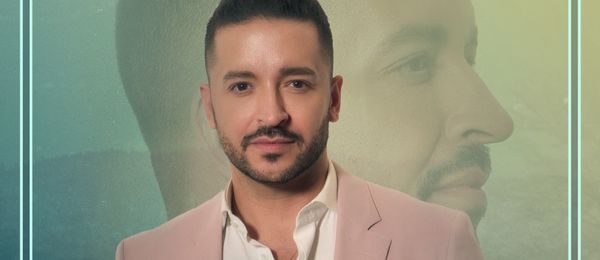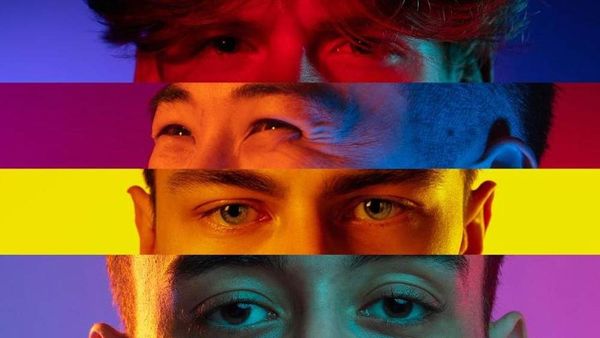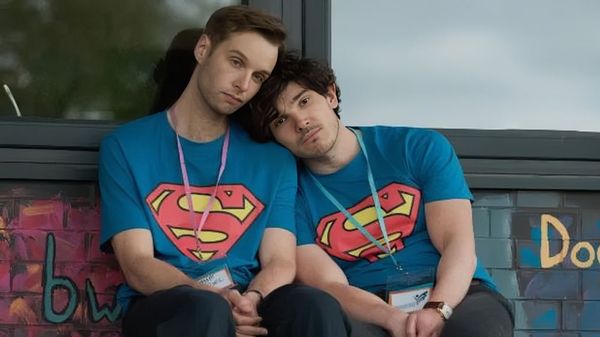June 19, 2008
She breaks for rainbows
Michael Wood READ TIME: 3 MIN.
Cheerful and ubiquitous, the rainbow flag is such a familiar sight at LGBT pride festivals and in gay neighborhoods that few of us really think about the symbol. (Although I once heard a lesbian comic complain about "rainbow compulsive disorder.") This Saturday at Rhode Island Pride, Liz Collins hopes to make us stop and think about our flag.
At her six hour long art installation, Knitting Nation, Collins and her team of knitters will make a performance out of the act of creation. Eight people will staff knitting machines to produce stripes expected to reach at least 90 feet in length, while another seven people hand knit the stripes together to form an enormous pride flag.
This act of collective assembly is actually a deconstruction, reminding viewers that symbology and ideology also coalesce out of group experience. To reinforce the point, volunteers will read aloud the results of Collins's survey of people's feelings about the flag.
"I really enjoy the complexity of the sound," says Collins. "With eight machines going at once and people talking over them, it's almost like a beehive. Adding the spoken-word content to that seemed like the logical way to share this information that people were giving me, about how they feel about the rainbow flag."
Underneath the frenzy of activity is a simple question: How do you feel about the rainbow flag as a symbol of pride, and why?
That's what Collins started asking people about two years ago. "I got such conflicting answers," she recalls, "that I thought it was an important thing to look at." And the more she asked the question, the wider a response she got, from people who think the flag doesn't represent the entire queer community to those who see it as a symbol of hope.
"I just got one today that was really intense," she reveals. "He confessed in his e-mail that he's a closeted gay man. He lives with his wife and two children and no one knows he's gay. So for him the flag represents hope in this really painful period of his life."
Another memorable response complained that gay people should choose a new flag "because I love rainbows and I'm not gay!"
Because her own feelings about the rainbow flag are "complicated," Collins can usually find something understandable in each response. Even the one from the straight rainbow lover.
"When I was a kid," she chuckles, "I was obsessed with rainbows. I had about 35 rainbows in my room. I was an artist early, so I was excited by the color spectrum. I knew nothing then of gayness or the rainbow flag." After coming out, she unthinkingly accepted the rainbow flag as a queer symbol. It wasn't until she began working on this project that she discovered that each color of the flag is meant to represent something, or that two colors - hot pink for sex and turquoise for art - had been dropped from Gilbert Baker's original 1978 design.
Her flag will include pink and turquoise.
As a queer textile artist, examining the pride flag is a natural fit for Collins. It's only a wonder that she didn't get to it sooner. The Providence Pride installation will be the fourth phase of Knitting Nation, a project that grew out of informal discussions between Collins and her friend, fashion designer Gary Graham, about their frustrations with the design world and fashion industry.
"We wanted to show the world what we could do, and lay bare our processes," Collins recalls. Although she and Graham never did collaborate on a performance piece, Collins stuck with the idea and since 2006 she has created on-site performances at an outdoor art festival, a New York gallery/shop, and at Rhode Island School of Design, where she now teaches.
These earlier phases looked at clothing, texture, and the American flag. Throughout, Collins was interested in both celebrating the medium of textiles and commenting on the state of the textiles industry. "In addition to that," she explains, "part of the mission is to think about what iconic symbols I can deconstruct and reconstruct and analyze."
And what happens to the finished flag?
"Good question," Collins quips. "Any ideas?"
Michael Wood is a contributor and Editorial Assistant for EDGE Publications.







